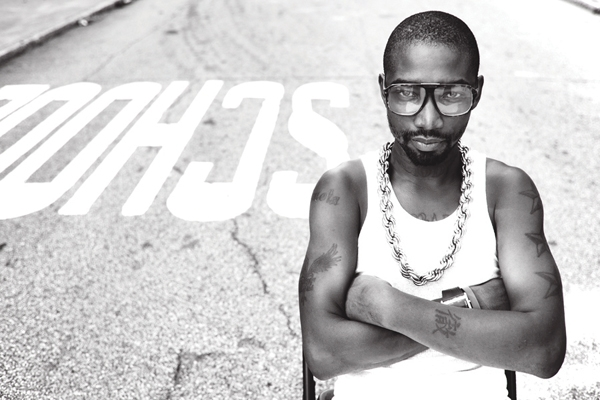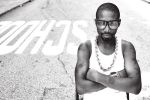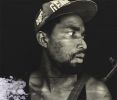
Outlaw Filmmaking with Damon Russell
Community
The line between reality and fiction can get blurry while making a documentary. Having produced and worked on reality-based television series like MTV’s Made and A&E’s The First 48, Damon Russell is no stranger to the drama that occurs when cameras capture real events. When robbery boy and crack dealer Curtis Snow approached Russell to make a movie about his life, he jumped at the chance and spent the next year and a half filming documentary-style footage around Atlanta’s most dangerous neighborhood, The Bluff.
The result, a film called Snow On Tha Bluff, premiered at the 2011 Slamdance Film Festival and immediately evoked questions about the truth of the events involved. While Hollywood gangsters are often cartoonish and lack dimension, Snow and Russell have created an authentic American story about struggle and survival.
SLUG: I was surprised by the amount of footage, it seemed like the camera was basically glued to your eye for the duration of filming. Is that true?
Russell: Yeah, and they did a good bit of filming when I wasn’t around, which was cool, ‘cause that’s some of the best stuff really. Whenever I was with [Snow], I would have it on, but there were things that were missed. I would leave and someone would get shot down the street—something that could have been of interest to the story, but when you’re shooting a movie like that you’re bound to miss things. You have to be thankful when you do capture something that’s never going to happen again.
SLUG: There are scenes of very graphic material in the film including violence and drug use. What was the hardest subject matter for you to shoot?
Russell: I’m pretty seasoned as far as having shot pretty extreme stuff. For me, it’s generally not fun unless it’s hard to shoot—if it’s not emotionally draining, I feel like I’m not doing anything. It’s exhilarating to be capturing something real. That supersedes whatever I’m feeling.
SLUG: Was there ever a question of, “by observing this, am I changing it?”
Russell: This is where I diverge from most documentary filmmakers. I use documentary techniques, but I’m definitely not a documentary filmmaker. As soon as you turn a camera on, you are changing the environment around you. Why not have fun with it and change it to something cool?
SLUG: I understand that for legal reasons, the authenticity of the footage and the events that take place have to remain ambiguous and you even destroyed unused footage. Can you tell us about any scenes you would’ve liked to include that didn’t make the cut?
Russell: There was a party scene that we did—I know where it would go in the movie, it would have been badass. But there were a bunch of people at this house and things started to get out of hand. We happened to be there with the camera, which was cool. But ultimately, I was worried someone would go to jail or all of us would go to jail and I would be guilty just by having been there.
That tape—I watched it once and then I burned it. At some point people started getting so comfortable with me that they would start talking about stuff I didn’t want to hear about. I don’t want any knowledge of open crimes. Especially the younger kids—they didn’t realize if you put certain things on camera it could hurt you, they’re just wild. I had to censor that to look out for myself and others.
SLUG: Along a similar line, without revealing anything, were you or any part of the production in real danger during the filming process?
Russell: Absolutely. The scariest part for me was the police. [Snow] is well respected and feared in that neighborhood and no one will really mess with him and so in turn no one would mess with me. But we were constantly on the run from the police. Curt and I got arrested together.
I had pistols pulled on me and someone tried to run me over with a car and I jumped out of the way. Times when I did go down there and felt, “someone’s going to jail tonight,” I would leave. The Atlanta police in that neighborhood don’t really ask questions, they don’t really care. They’ll just arrest your ass. That’s scary ‘cause if you’re in the wrong place at the wrong time, you’re going down. We had to constantly move, we didn’t do multiple takes, we’d just do it and move the hell on.
Ultimately, that’s how those guys live. They’re constantly on the run, they always have warrants out for their arrest, they’re always violating their probation, and it’s just always that lion-antelope analogy. I didn’t really understand it at first. Like, “why don’t you just stop breaking the law, then you won’t get in trouble.” I started to see that if you’re poor and in the hood, there’s a separate set of rules that apply to you, and if the cops feel like arresting you, they pretty much can. Trouble will find you, which was scary, but it did add to the authenticity of the film, because that’s how they really live.
Watch the trailer for Snow on tha Bluff below:

